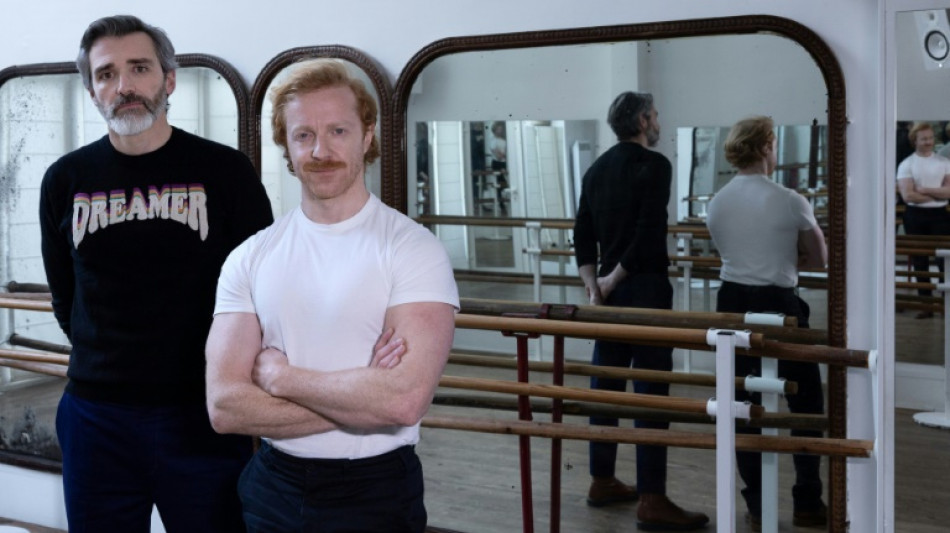
-
 SFWJ / Medcana Announces Strategic Expansion Into Australia With Acquisition of Cannabis Import and Distribution Licenses
SFWJ / Medcana Announces Strategic Expansion Into Australia With Acquisition of Cannabis Import and Distribution Licenses
-
Spurs players 'never lost belief', says Postecoglou

-
 Man Utd stun Lyon in nine-goal Europa League classic to reach semis
Man Utd stun Lyon in nine-goal Europa League classic to reach semis
-
Netflix earnings in first quarter of 2025 top forecasts

-
 Trump says US 'talking' to China on tariffs
Trump says US 'talking' to China on tariffs
-
Salvadoran soldiers stop US senator near prison holding expelled migrant
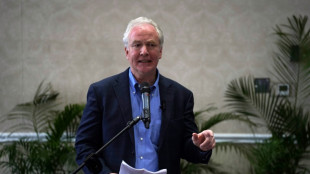
-
 Solanke penalty sends Spurs to Europa League semis
Solanke penalty sends Spurs to Europa League semis
-
CAF crackdown after trouble in African club matches

-
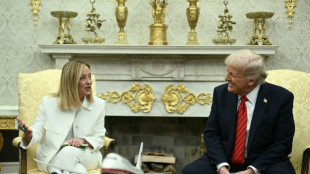 Trump talks up EU tariff deal as Italy's Meloni visits
Trump talks up EU tariff deal as Italy's Meloni visits
-
Trump insists he could fire independent Fed Chair Powell
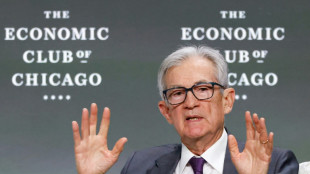
-
 Google has illegal monopoly in ad tech, US judge rules
Google has illegal monopoly in ad tech, US judge rules
-
Trump softens on Zelensky, says mineral deal coming 'soon'
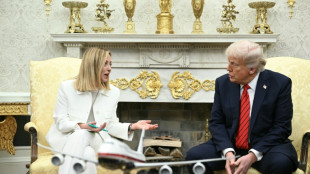
-
 Jacks helps Mumbai beat Hyderabad in IPL
Jacks helps Mumbai beat Hyderabad in IPL
-
Countries must 'make the best' of new multipolar world: IMF chief
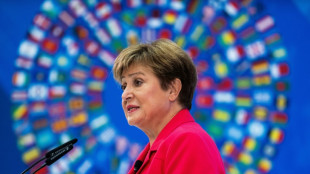
-
 Heavy spring snow storm wreaks havoc in the Alps
Heavy spring snow storm wreaks havoc in the Alps
-
US judge rules against Google in online ad tech antitrust case

-
 Andreeva knocked out by Alexandrova in Stuttgart last 16
Andreeva knocked out by Alexandrova in Stuttgart last 16
-
Iran challenges four countries in UN court over jet it downed in 2020
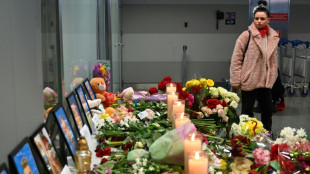
-
 'Not at 50' - Alonso sets retirement limit
'Not at 50' - Alonso sets retirement limit
-
Macron praises US-European-Ukraine talks as 'important occasion for convergence'

-
 Verstappen dismisses Red Bull exit fears
Verstappen dismisses Red Bull exit fears
-
Italy's Meloni, Trump talk up EU trade deal hopes

-
 'Slow but steady' progress for Martin after Qatar MotoGP crash
'Slow but steady' progress for Martin after Qatar MotoGP crash
-
Pogacar-Van der Poel duel inspires Evenepoel comeback

-
 US judge rules Google monopolized online ad tech market
US judge rules Google monopolized online ad tech market
-
Bearman back at 'special' debut-track Jeddah

-
 Swiss watch exports to US soared ahead of Trump tariffs
Swiss watch exports to US soared ahead of Trump tariffs
-
Alcaraz finds best to reach Barcelona Open quarters

-
 Where are all the aliens?: Fermi's Paradox explained
Where are all the aliens?: Fermi's Paradox explained
-
France full-back Dulin to retire at end of season

-
 World economy likely to avoid recession despite tariffs: IMF chief
World economy likely to avoid recession despite tariffs: IMF chief
-
57 killed in Sudan's Darfur as trapped civilians fear bloodbath

-
 Vietnam ups wind, solar targets as energy demand soars
Vietnam ups wind, solar targets as energy demand soars
-
Pope says doing 'best he can' on jail visit before Easter
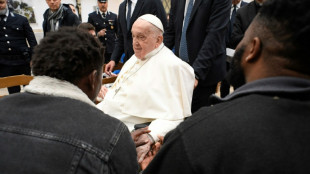
-
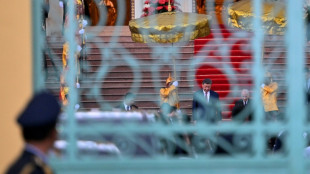 China's Xi meets Cambodian leader as part of regional diplomatic blitz
China's Xi meets Cambodian leader as part of regional diplomatic blitz
-
Ukrainian tennis player seeks legal justice over 'moral abuse'
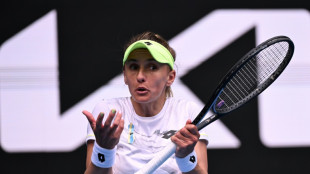
-
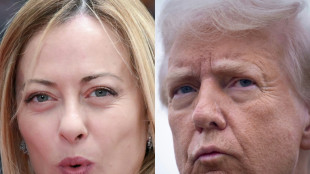 Italy's Meloni seeks EU tariff deal from Trump
Italy's Meloni seeks EU tariff deal from Trump
-
France's feminist icon Pelicot to sue Paris Match for privacy invasion
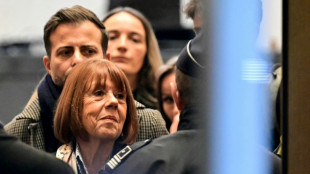
-
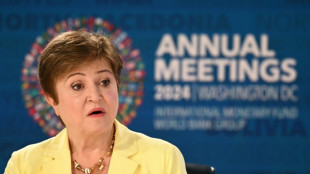 World economy should avoid recession despite tariffs, IMF chief says
World economy should avoid recession despite tariffs, IMF chief says
-
Stocks waver as ECB cuts rate, Trump slams Fed chief
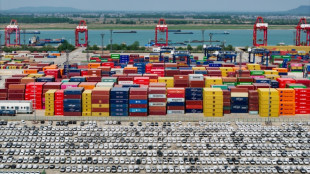
-
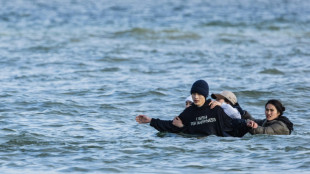 France, UK mull migrant swaps in bid to stem Channel crossings
France, UK mull migrant swaps in bid to stem Channel crossings
-
Nuno says Forest still in control of Champions League chase

-
 Malinin, Liu help US take early lead at skating's World Team Trophy
Malinin, Liu help US take early lead at skating's World Team Trophy
-
Clashes in Sudan's besieged Darfur city kill 57

-
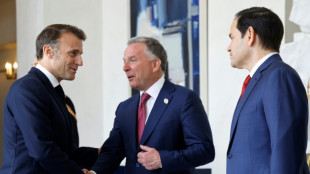 Kyiv's Europe allies seek influence with US in Paris talks
Kyiv's Europe allies seek influence with US in Paris talks
-
Russia scraps Taliban's 'terror' label amid warming ties

-
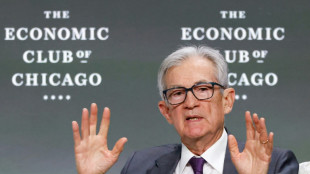 Trump says Fed chief's 'termination cannot come fast enough'
Trump says Fed chief's 'termination cannot come fast enough'
-
China's Xi, seeking to build regional ties, meets Cambodian leader
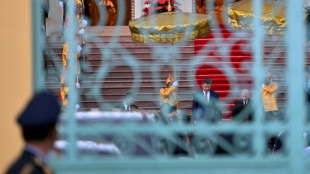
-
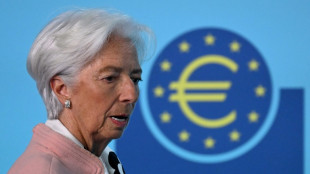 ECB cuts rates as Trump tariffs raise fears for eurozone growth
ECB cuts rates as Trump tariffs raise fears for eurozone growth
-
Etzebeth returns to Sharks lineup after concussion absence


Ballet star and survivor Steven McRae says dance must change
After an almost super-human recovery from an injury, star dancer Steven McRae says the ballet world must take much better care of its artists.
As charted in the upcoming documentary "A Resilient Man", McRae thought his high-flying career as a principal dancer in London's Royal Ballet was over when he heard the horrific sound of his Achilles tendon snapping midway through a performance of "Manon" in October 2019.
It took months for McRae to walk again, but he was lucky: the Royal Ballet is one of the only companies in the world with a dedicated medical team.
"In the world of dance, injuries have always been seen as a sign of weakness," he told AFP. "You're injured, you're useless. Out. Next!"
It took a Herculean two-year effort, supported by his physios, for McRae to return to the stage and get back in peak form.
But the experience has radically changed his view of the ballet world.
- 'Go go go' -
McRae had unlikely origins in Australia.
He is the son of a mechanic and drag-racer, with his family having limited funds for a classical dance education.
But talent and determination ultimately led him to first prize at the world's biggest dance competition, in Lausanne, and a scholarship to the Royal Ballet School.
"None of it was handed to me on a silver platter, and anyone who has to fight for something then protects it," he said.
"In that fear of losing it all, you say yes to everything. You don't complain about anything. Just go go go."
McRae became one of the company's biggest stars, but he did it by pushing his body to extremes with little care for his physical and mental well-being, relying on a steady intake of painkillers to survive performances and being so burned-out that he felt emotionally numb when he came off stage.
Something had to give, and, aged 35, it was his Achilles.
"Now I know I was dangerously underweight and not as powerful as I thought," he said.
"And the culture of ballet means I was surrounded by these alien bodies... it didn't matter how small or ill I looked, there were always many more people that looked worse than me."
- 'Stop torturing children' -
McRae is 10 kilos heavier than before his injury thanks to the muscle he has acquired in the gym. He sees that added strength as common sense and wants ballet to give up its obsession with slender figures.
"The reality is our profession is a visual art form so there's a certain look that complements what we're trying to create," he said.
"But over the years it's become so warped. There's this preconceived idea of that image... but who is this ballet god telling everybody what it should be?"
He said ballet academies often judge children more on appearance than skill.
"That's wrong... we need to be looking at them as young artists, as individuals. Not 'How long are their legs? How thin are they?'"
Even companies with physios and gyms are still not making time in weekly schedules for dancers to use them, he added.
"Now we have a medical team, we are receiving a lot of new information from sports scientists about our physical and mental well-being and how it's correlated," he said.
"Now it's time to respond. It doesn't have to be huge -- just small, incremental changes. We can still achieve excellence without sacrificing our entire world."
Stephane Carrel, the director of "A Resilient Man", which will be released in Britain and elsewhere later this year, said he hopes the film will encourage change.
"It would be good to stop torturing children and ensure that dancing remains, above all, a pleasure," said Carrel.
Nonetheless, he said watching the extreme efforts of dancers helped motivate his own work.
"Trying to get a documentary made is extremely difficult... so to see Steve's fight, it helped me a lot. I told myself: I'm not giving up."
H.E.Young--AMWN


